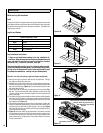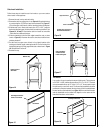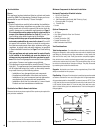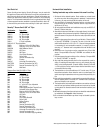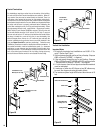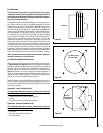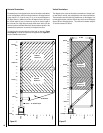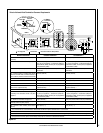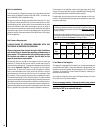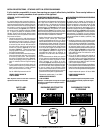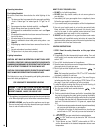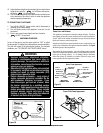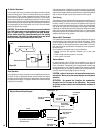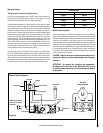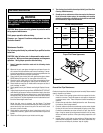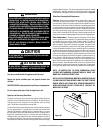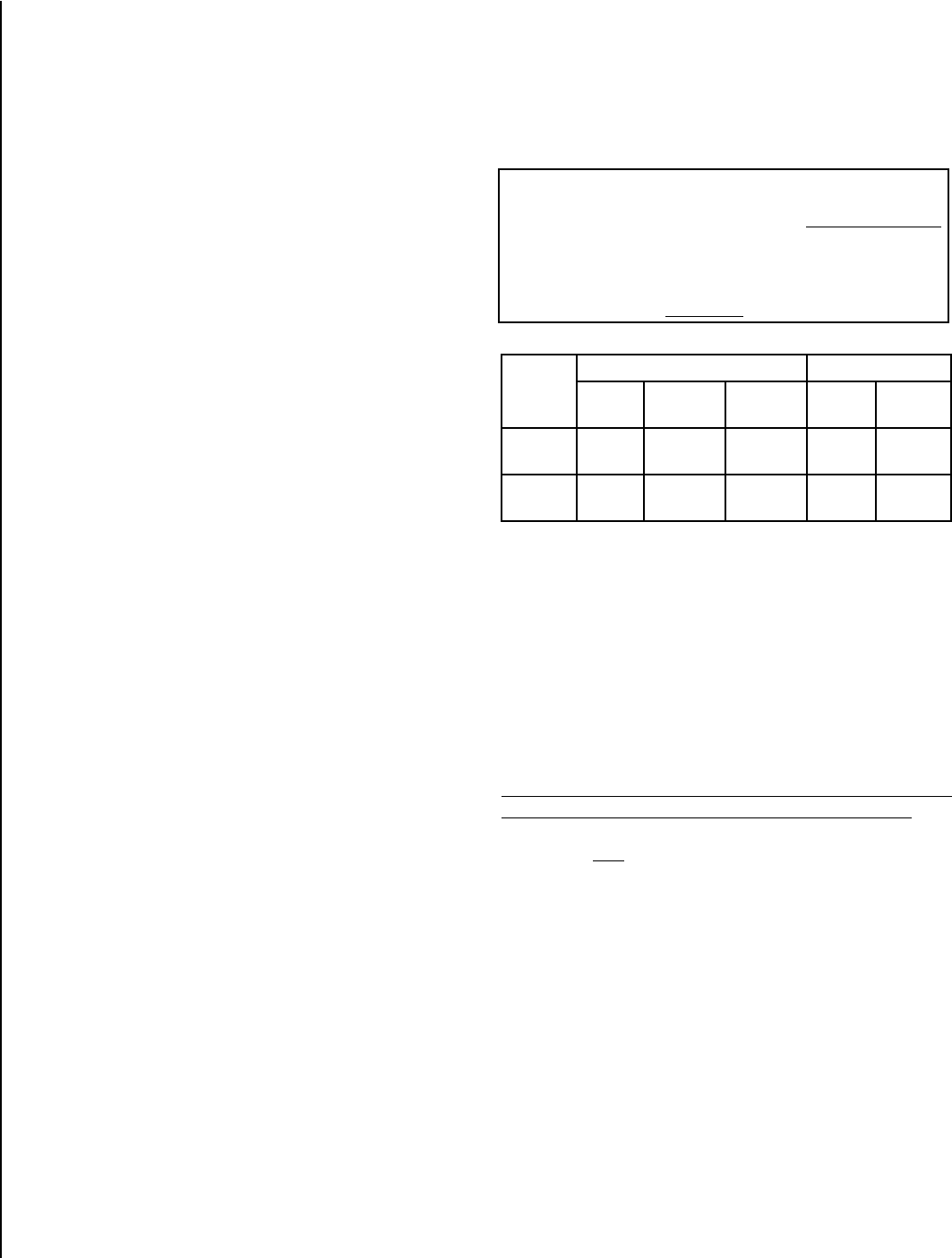
18
Gas Line Installation
This stove must be connected to the gas line in accordance with local
codes and/or the National Fuel Gas Code, ANSI Z223.1 (In Canada, the
current CAN/CSA B149.1 installation code).
The gas line screws into the gas valve at the back of the stove 5” in from
the right side of the stove and 4 3/16” up from the base of the unit. After
connecting the gas line, all joints in the line and connections at the valve
should be checked for leaks. After connecting the gas line, all joints in
the line and connections at the valve should be checked for leaks before
final positioning of the unit. Conduct a gas leakage test of the appliance
piping and control system downstream of the shutoff valve in the supply
line to the appliance.
Gas Pressure Requirements
A MAJOR CAUSE OF OPERATING PROBLEMS WITH GAS
APPLIANCES IS IMPROPER GAS PRESSURE!
The most important item to check during the initial installation
and the first thing to check when operating problems occur is
gas pressure! This appliance will not function properly unless
the required gas pressure is supplied. See the table on this
page for gas pressure requirements.
Two pressure taps are provided on the appliance’s valve to check gas
pressures. To access the taps remove the two socket head screws to
remove the valve control panel. The taps are located above the on/off/pilot
knob (see the Figure 30 on Page 21). The right tap is the inlet (supply)
pressure side. To check inlet pressure (with the appliance burning)
insert a small flat bladed screw driver into the tap and turn a half turn
counterclockwise. Cover the tap with the line from a manometer. Read
the pressure. Close tap gently but securely after completing the check.
The manifold (outlet) tap is to the left of the inlet tap. To check manifold
pressure (with the appliance burning at the high burn setting) insert a small
flat bladed screwdriver into the tap and turn a half turn counterclockwise.
Cover the tap with the line from the manometer and check the pressure.
Again close tap gently but securely after completing the check. Check the
taps for gas leaks with a gas leak test solution (retighten if necessary).
LP and Natural Gas Supplies:
This appliance is equipped from the factory for use with natural gas only
as specified on the Safety / Listing label attached to the appliance. This
appliance can only be operated using propane gas (LP) if a certified fuel
conversion kit provided by Lennox Hearth Products is installed by a
qualified service technician.
Also check the orifice size on the label on the igniter bracket. It must be
the correct size for the fuel and altitude.
Do not run propane tank dry. Running the tank dry may cause a
hazardous condition due to pressure drop in empty tank.
Solid fuel is NOT to be used with this unit.
Fuel
Type
Inlet Pressure Manifold Pressure
Desired Minimum Maximum On Hi
Fire
On Lo
Fire
Natural
Gas
7" WC 5" WC 10.5" WC 3.5" WC 1.8" WC
LP Gas 11" WC 11" WC 13" WC 10" WC 6.0” WC
If the pressure is not sufficient, make sure the gas supply line is large
enough, The supply regulator is properly adjusted and the total gas load
for the residence does not exceed the amount supplied.
Propane tanks are at pressures that will cause damage to valve com-
ponents. Verify that the tanks have step down regulators to reduce the
pressure to safe levels.
The appliance must be isolated from the gas supply piping system
by closing its equipment shutoff valve during any pressure testing of
the gas supply piping system at test pressures equal to or less than
1/2 psig (3.5 kPa).
The appliance and its appliance main gas valve must be disconnected
from the gas supply piping system during any pressure testing of that
system at test pressures in excess of 1/2 psig (3.5 kPa).



